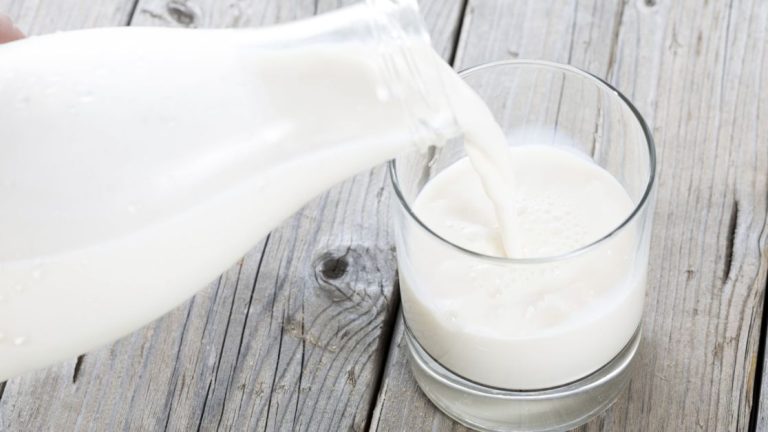Too much sugar can lead to obesity, high blood pressure, type 2 diabetes and the so-called metabolic syndrome. Nevertheless, almost everyone likes to grab chocolate, gummy bears or sweet drinks. Is it the sugar addiction?
Sugar is not healthy and we eat far too much of it – everyone knows that by now. Whether sugar can be addictive and whether there is a sugar addiction is discussed in science.
Does Sugar Addiction Exist?

There are already a number of studies that deal with sugar addiction. Prof. Falk Kiefer from the University of Heidelberg used magnetic resonance imaging (MRI) to look inside the brains of overweight people. He found that our brain reacts differently to apples than to sweets: the high-sugar foods activate the reward system. Similar to alcohol or other addictive substances, the brain releases more dopamine. Dopamine is known as a kind of happiness hormone. Nevertheless, Prof. Kiefer does not speak of a sugar addiction. However, there is no question that sugar can trigger addiction-like behavior.
Other studies have tested the link between sugar and addiction in rats. High sugar consumption caused brain changes in the rats. This later led to a craving for sweets. However, it remains unclear whether the result can also be transferred to humans.
Where does sugar addiction come from?
We live in a time when sugar is available anytime, anywhere. That was not the case before. The five tastes of bitter, salty, sour, umami (savory) and sweet were used by our ancestors to judge whether something was edible or poisonous. Poisonous plants are often bitter, unripe ones often sour. A sweet taste, on the other hand, means that something is ripe and edible. No wonder we love sugar and can’t resist it.
But our problem today is that we can hardly avoid sugar. It is omnipresent and available at all times. If you want to try avoiding sugar and reducing your cravings, Utopia shows you a number of helpful tricks.
Sugar withdrawal tip 1: Eat sensible food
Sounds banal, but it is important: try to eat as wholesome and healthy as possible. Dietary fibers from green vegetables or whole grain bread and proteins from legumes keep you full for longer. And you’ll get cravings less quickly.
Also watch out for hidden sugar in food: Sugar can be added to convenience products, bread, yoghurt or supposedly healthy fruit bars. And it doesn’t necessarily have to be called “sugar”: Sugar is also hidden behind sucrose, lactose, fructose (sirup), fructose, glucose (syrup), dextrose, invert sugar (syrup), dextrose or (malto)dextrins .
Sugar withdrawal tip 2: Eat regularly
Breakfast, lunch, dinner: These three meals should definitely be included. The longer you go without a meal, the more likely you are to crave sweets. And if you get hungry in the meantime: try fruit. Of course, fruit also contains sugar, which you want to avoid during sugar withdrawal. However, fruit is not as sweet as table sugar and also contains many important vitamins, minerals and fiber.
Sugar withdrawal, tip 3: Sweetener as a sugar substitute?
D rather not. Sweeteners are at least as sweet as sugar. So you won’t be able to get rid of the sweet taste from the sugar substitute. In addition, some sweeteners are not recommended: the sweeteners aspartame, acesulfame and cyclamate are suspected of having an appetizing effect and the consumer centers advise against consuming larger quantities. It is better to gradually reduce the amount of sugar as you withdraw from it.
Sugar withdrawal, tip 4: Sport against sugar addiction
The next time you get cravings, lace up your sneakers. Because when you exercise, your body releases the same feelings of happiness as it does with sugar. Especially when you go to your limits and it gets really exhausting, feelings of elation set in. In addition, the feelings of happiness last longer. You’ll still feel energetic and happy hours later, unless you’ve completely exhausted yourself by exercising.
Which sport you choose is up to you. The main thing is to exercise and have fun.
Sugar withdrawal tip 5: Get enough sleep
After a good workout you can sometimes sleep like a baby. And that’s a good thing: those who have had a good night’s sleep have less of a need for sweets to keep themselves awake and active.
The subject of sleep is often underestimated in everyday life. Not getting enough sleep can lead to a vicious circle: You are tired, so you eat sweets, you wake up for a short time, your blood sugar level takes a roller coaster ride. Then you won’t be able to fall asleep at night and the fun starts all over again.
Better get seven to eight hours of sleep, and you might not even think about your cravings, and the sugar withdrawal will go just fine.
Sugar withdrawal, tip 6: risk factor stress
Many people eat sweets because they are stressed. But chocolate & co. are not conducive to relaxation and sugar withdrawal quickly turns into a failure. After a stressful day, you should rather go out into the fresh air or get your mind off things when you talk to friends on the phone.
Or you try to counteract the causes of stress: For example, try to manage your working hours more efficiently so that you don’t drown in tasks. Or talk about it with the people who are causing you problems – for example, if someone in the family or close friends is the trigger of your stress.
Sugar withdrawal tip 7: Drink water if you are addicted to sugar
When cravings get you and you don’t have trainers handy, what then? Sugar attacks are often not as bad as we think. Try it with a large glass of water (or two or three…).
You can also feel really full of it, it will pass quickly. And? Still craving sweets?
Sugar withdrawal tip 8: Ban sweets from your reach
No matter how disciplined you are with sugar withdrawal, do you clear out all the cupboards when you get addicted to sugar? Then banish the seductive content elsewhere. Hide the candy in a place that’s hard to get to and doesn’t always catch your eye—like way back on a large closet. In the long run, however, only helps to get rid of the sweetness completely. Give it away to family or neighbors, or share it on foodsharing.
Being controlled by those around you can also help. Let co-workers, friends and family know that you are on sugar withdrawal. Who wants to be caught giving in to sugar addiction and emptying the pantry …
Positive support from those around you has an even more lasting effect: find someone who can tackle sugar withdrawal with you. In pairs or threes, you can motivate each other, praise each other – and sometimes stop yourself from giving in to sugar addiction “when you get hungry”.
Sugar withdrawal tip 9: Distract yourself
If you are about to give in to sugar addiction again: go for a walk, draw a picture, write down nice things, call a friend, read a good book or meditate a bit. Objectively, these are far more pleasant things than crushing a bag of gummy bears. It only takes you a few clear seconds to think about anything other than sugar, your sugar withdrawal, your sugar addiction. Withdrawal will take care of itself and you will be happy. Worth it.
Sugar Withdrawal Tip 10: Hold on to your success
There are always low points when you can’t take it anymore, when you want to throw everything away. Of course, also during a sugar withdrawal. It’s best to write down everything you’ve done. Then you can use it to motivate yourself again in low phases when sugar addiction strikes from behind.
For example, you could write down all the foods you want to avoid (chocolate, jelly beans, cake,…). For each day you’ve done that, put a tick next to it. Or you mark every day without sugary in the calendar. Once you have a small series of ticks on the paper, you probably won’t want to break the series.
Conclusion

Whether sugar addiction really exists has not been finally clarified – but sugar seems to have an addictive effect. In any case, it makes sense not to eat too much sugar. There are many small things that can help you with sugar withdrawal. It is important not to set your goals too high at the beginning and then gradually increase them. Here’s how you can tackle sugar withdrawal and reduce your cravings for sweets.

















